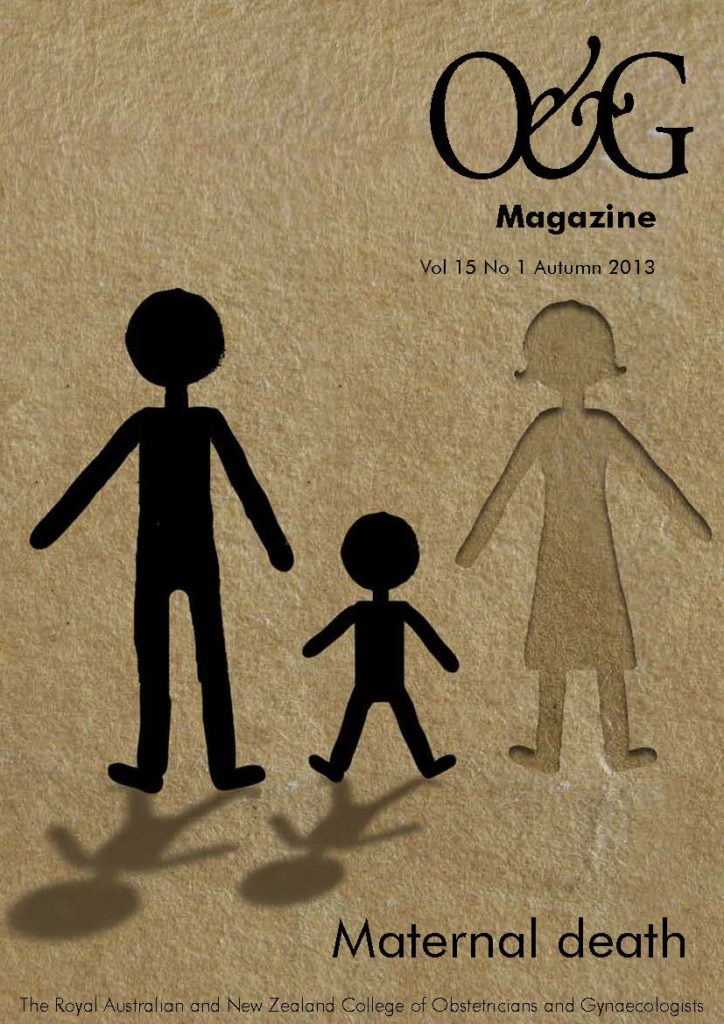Good teamwork is a key contributing factor to successful emergency obstetric outcomes. There are three courses available within the field of obstetrics that aim to enhance teamwork and leadership.
Two courses from the UK have changed the landscape in emergency training in obstetrics in the last few years: Managing Obstetric Emergency and Trauma (MOET) and PRactical Obstetric Multi-Professional Training (PROMPT). These join the Advanced Life Support in Obstetrics (ALSO) course that originated in the USA and has been in Australia since 2001.
Most RANZCOG Fellows and Trainees will be familiar with ALSO, an entry-level emergency obstetric course that is well suited to obstetric senior residents and junior registrars. ALSO is a multidisciplinary course, bringing together obstetricians, midwives and general practitioners.
The ALSO course is owned by the American Academy of Family Physicians and overseen in Australia by an ALSO Board. Held over two days, it incorporates lectures and scenario training. The course covers basic obstetric material, such as shoulder dystocia and postpartum haemorrhage, as well as basic resuscitation. The course uses mnemonics – such as HELPERR for shoulder dystocia – that have become a feature on many a delivery suite wall.
The strength of the ALSO course is the multidisciplinary nature of its candidates and teachers. Maternal resuscitation needs to be regularly practised in order to maintain skills. All obstetricians will benefit from attending this course, although senior obstetricians may find they are not greatly challenged by some of its obstetric components.
PROMPT is an intermediate-level course that is relatively new to Australia. This course has been largely designed and promoted by a former MOET instructor. It is also multi-disciplinary and uses a variety of teaching modalities to teach core knowledge and skills in maternal resuscitation and obstetric emergencies.
The PROMPT course has been shown to produce better outcomes for obstetric units and is an essential course for anyone working on a delivery suite. Its great strength is the fact that standardised training can be delivered locally within a unit.
The focus of the PROMPT course is very much on optimising the function of the team. Since substandard care and poor outcomes often have their roots in poor communication, the teamwork nature of this course is one of the reasons RANZCOG has accepted the task of rolling it out to maternity units throughout Australia. There is, however, less focus on the team leader role and senior obstetricians may again find they are not greatly challenged by the course.
The final course that I wish to mention is the one with which I am most familiar. The MOET course was developed in the UK to equip participants with the knowledge, confidence and skills to manage serious obstetric and anaesthetic complications in pregnant women. It was designed by Charles Cox and Richard Johanson, along the same lines as the Emergency Management of Severe Trauma and Battlefield Advanced Trauma Life Support courses.
The MOET course draws on its military origins to promote a systematic and structured approach to trauma and emergency obstetric management, using the standard basic life support and advanced life support algorithms. Like the other two courses, MOET is multidisciplinary; however, it is aimed principally at obstetricians and anaesthetists at the level of consultant or senior registrar. Midwives attend as observers and participate as assistants in the scenarios, as in real life.
MOET is run under the auspices of the Advanced Life Support Group, an educational charity that is based in Manchester, UK. The course is supported by a course manual, which is a standalone teaching text that is an invaluable resource to anyone working, teaching or interested in this area.
The course and course manual underwent a major revision in 2007, which provided a greater emphasis on obstetric emergencies and less on trauma. Trauma remains, however, an excellent vehicle for teaching a structured approach. It is useful for clinicians to start with A (airway) B (breathing) C (circulation) and to focus on all aspects of resuscitation, based on the principle that adequate resuscitation of the mother is paramount. It also incorporates major and recurring recommendations from the Confidential Enquiries into Maternal and Child Health.
The great strength of the MOET course is that it challenges everyone, from candidates to instructors, each and every course. The focus is very much on learning the role of the individual as the team leader, rather than the function of the team as a whole. Using a diverse range of teaching modalities the course covers basic and advanced resuscitation to both obstetric and anaesthetic emergencies.
The MOET course started in Australia in 2009. Initially supported by Advanced Pediatric Life Support, the course is now administered by Mayhem, the organisation that also administers the ALSO courses. There are usually two MOET courses per year in Australia and one in New Zealand. Like other courses, the MOET course is regularly updated. Current plans for the course include a section on human factors and in-utero transfers. Just one of the great benefits of the MOET course is the greater understanding of obstetric anaesthesia gained by obstetricians and of obstetrics by anaesthetists. If you want a course to stimulate and challenge you, then this may be the course.
In summary, we have a variety of courses that all incorporate multidisciplinary, multi-modality and evidence-based teaching to improve obstetric care in Australia and New Zealand.






Leave a Reply